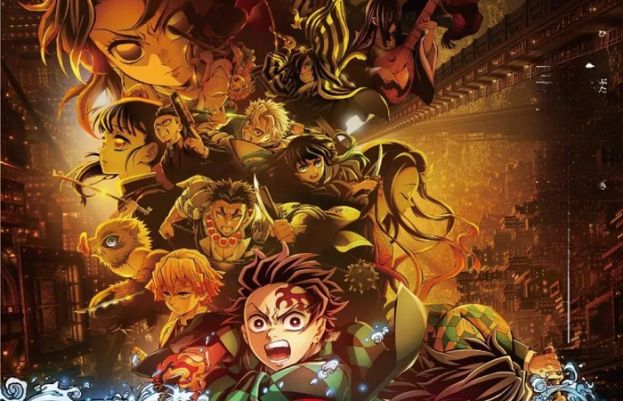The story of young swordsman Tanjiro Kamado and his companions battling human-eating demons continues to captivate audiences worldwide. And it is admired for its stunning animation and heartfelt themes of friendship and family bonds.
In just 60 days since release, the film has grossed 33 billion yen ($224 million) in Japan, surpassing Studio Ghibli’s 2001 classic Spirited Away, which earned 31.6 billion yen.
The achievement was confirmed by industry tracker Kogyo Tsushinsha.
The 155-minute epic also topped the North American box office this past weekend, pulling in a genre-record $70 million debut.
Distributor Aniplex celebrated the milestone, saying: “We hope the Demon Slayer fandom will continue to grow worldwide.”
With this record, the franchise now only has itself to beat: the first Demon Slayer movie, released in 2020, remains Japan’s top-grossing film with 40.7 billion yen.
Promotion for the new trilogy opener has been massive in Japan from train station billboards and prime-time TV spots to even rice paddy art featuring Tanjiro.
“I cry every time I watch it,” said 22-year-old Yuri Kamada after her third screening at Tokyo’s Grand Cinema Sunshine in Ikebukuro, describing “nothing but pride” in the film as a Japanese fan.
The movie also earns praise for its nuanced depiction of both humans and demons, and for raising the bar in anime cinematography.
Studio Ufotable’s dazzling visual style shines through in gravity-defying fight sequences set inside a kaleidoscopic, ever-shifting castle.
Originally created by manga artist Koyoharu Gotouge, Demon Slayer has now cemented itself not just as a cultural phenomenon, but as one of Japan’s greatest box-office legends.
Demon Slayer's relative accessibility also sets it apart from other manga juggernauts like "One Piece", which spans over 100 volumes.
"Unlike 'One Piece' or 'Dragon Ball', it's a rather short series of around 20 volumes, and I appreciate its simple, easy-to-understand plot," Reo Takagi, a 19-year-old Tokyo student, said after his second viewing.
Anime dominates in Japan, where only two of the 10 highest-grossing films are live-action namely "Titanic" and the first of the "Harry Potter" series.
Partly buoyed by the indoor entertainment boom during the Covid-19 pandemic, anime's popularity has exploded globally in recent years, with streaming giants like Netflix rushing to capitalise.

